What do Bruce Lee (Enter the Dragon), Chuck Norris (Slaughter in San Francisco), Jackie Chan (Wheels on Meals), Jean-Claude Van Damme (Bloodsport), Jet Li (Fist of Legend), Roger Yuan (Once Upon A Time in Vietnam), Ron Yuan (Ring of Fire), Richard Norton (City Hunter) and Chuck Jeffreys (Bloodmoon) have in common? They’re all martial arts stars who have appeared – sometimes inadvertently and/or subconsciously – in a video game.
Note: This article is not about video game-to-martial arts movie adaptations. It is, however, an article about how the martial arts film subgenre – and its known faces – has had a significant influence on the video game subculture. In other words, it’s the other way around: a look at how martial arts film found its way into video games – a practice that’s very much alive and still kicking today.
This practice is not only evident in traditional video games either. Living in Las Vegas, Nevada – a resort city known for its buzzing energy, 24-hour gambling and endless entertainment – I can’t count the number of times I’ve strolled through casinos and seen slot games from sites like www.casinoonline.co.nz – and many of them are martial arts-themed – for instance, the slot games for Crouching Tiger, Hidden Dragon and the Fist of Fury–inspired Red Dragon.
Whether it be a an arcade from yesteryear, a casino on the Las Vegas strip, a Levi’s commercial or even the branding of a legendary rap group like Wu-Tang Clan – the prime elements of a martial arts film are an appealing force to be reckoned with.
Without further ado, let’s take a look at martial arts film in video games:
Chuck Norris Superkicks (1983)
Here’s a “Chuck Norris Fact” for you: The first ever video game to feature a martial arts star was Xonox’s Chuck Norris Superkicks (aka Kung Fu Superkicks), which was released for the Atari 2600, Colecovision and Commodore home computers.
In Chuck Norris Superkicks, your mission is to karate the hell out of your enemies by either kicking or punching them. You also have the option of doing flips to counter their attacks. The game also features an in-game map, which, for the time, was pretty groundbreaking. Otherwise, Chuck Norris Superkicks is long forgotten – and probably for good reason.
Bruce Lee (1984)
Developed by Datasoft Inc. for the home computer market, Bruce Lee put our hero in an 8-bit fantasy world where he faces off with ninjas and green-colored sumo wrestlers in a platform-based environment. Bruce also has to skillfully force his way through mines, moving walls and traps rigged with electric shock mechanisms.
Till this day, Bruce Lee is the most acclaimed Bruce Lee-themed game that ever hit the market. Unfortunately, that’s not saying much.
Spartan X (1984)
Spartan X is the Japanese title to the 1984 Jackie Chan film Wheels on Meals, hence the title to the Japanese version of the arcade game developed by Irem.
The plot of this platform-based game had little to do with the movie, other than the fact you played a kung fu dude named Thomas (portrayed by Chan in the movie) who had to rescue a girl named Sylvia (portrayed by Lola Forner in the movie) by fighting henchmen in a series of levels reminiscent of Bruce Lee’s Game of Death – i.e. each higher floor featured a boss more powerful than the one before it.
In the U.S., the game was retitled to Kung-Fu Master, then retitled again on the Nintendo Entertainment System (NES) as Kung Fu. Whatever you want to call it, it’s one hell of a game that holds up well till this day.
The Karate Kid (1987)
Based on the successful franchise of the same name, LJN’s The Karate Kid, for the NES, was structured just like Spartan X (1984): part platform with tournament stages where you battle bosses from the movie. Unlike the latter, The Karate Kid has bonus stages where you do things like test your timing by karate chopping blocks of ice, or try catching flies with chopsticks.
The game covers both The Karate Kid (1984) and The Karate Kid II (1986). Sorry to all of you Thomas Ian Griffith fans.
Bruce Lee Lives (1990)
Also known as Bruce Lee Lives: The Fall of Hong Kong Palace, this PC rarity, developed by The Software Toolworks, follows the footsteps of tournament-style fighting games like Karate Champ (1984), Yie Ar Kung-Fu (1985) and Street Fighter (1987).
What made Bruce Lee Lives unique was its AI engine, which changed its difficulty level based on the actions of the player. Pretty slick for the time… just ask someone who has actually played it (that one person is out there somewhere).
Jackie Chan’s Action Kung Fu (1990/1991)
Now Production’s Jackie Chan’s Action Kung Fu, for the NES and TurboGrafx-16 systems, is a platform-based game rendered in a cartoon-style similar to the popular Kid Niki: Radical Ninja (1986). In the game, Jackie has to save his sister from an evil sorcerer and his many minions.
Considering its pre-Rumble in the Bronx U.S. release in 1990, you’d have to be somewhat of a kung fu movie fan to know who Jackie Chan was. Otherwise, the name Jackie Chan was just as fictitious as Kid Niki.
3 Ninjas Kick Back (1994)
I’ll probably be crucified for including this one in the article, but whether you like it or not, 3 Ninjas Kick Back is a martial arts movie that became a video game.
Developed by Malibu Interactive for the Sega Genesis, Super NES and Sega CD3, Ninjas Kick Back is another platform-based game where you where you can select one of the three brothers – each with their own unique weapon: a bo, a katana or a sai – to battle ninjas, killer animals, boulders and spikes. Next…
Dragon: The Bruce Lee Story (1995)
Based on the 1993 film of the same name, Virgin Interactive’s Dragon: The Bruce Lee Story – for the Atari Jaguar, Sega Master System and the Super NES – is a tournament-style/beat ’em up game that sort of follows the movie: you fight gwai lo sailors, Chinese chefs, some guy who’s supposed to be “Wong Jack Man” and even the demon in Bruce’s nightmare. Then the game goes off course by throwing in bad guys who weren’t even in the movie. For instance, a Mr. Han-like character from Enter the Dragon, complete with hand claws. Those looking for Lauren Holly in short gym shorts will be left disappointed.
Dragon: The Bruce Lee Story was also released for the Sega Genesis and Game Gear, but due to the the hardware limitations of these two systems, the version of the game was more of a simpler, platform-style adventure. Again, those looking for Lauren Holly in short gym shorts will be left disappointed.
Street Fighter: The Movie (1995)
To coincide with the 1994 Jean-Claude Van Damme film, Street Fighter: The Movie (which itself, was based on the Capcom video game franchise), Incredible Technologies gave the film’s video game adaptation the Mortal Kombat treatment: graphics that used realistic digitized sprites, instead of drawn artwork.
The game showcases every actor/actress portrayed in the movie as playable characters. All it was missing were some gruesome fatalities – but hey, that’s where Mortal Kombat had the upper hand.
Supreme Warrior (1995)
You know what, screw digitized sprites! It’s all about full motion video, which is exactly what Digital Pictures did with Supreme Warrior, a first-person fighting/adventure game released for the 3DO, Mac, PC and Sega CD.
Not only was Supreme Warrior filmed on location in China on the Shaw Brothers‘ “Shaw Town” backlot, it also featured Vivian Wu, Roger Yuan, Chaplin Chang, Richard Norton, Ron Yuan and Chuck Jeffreys. In a nutshell, Supreme Warrior is a unforgettable classic that you don’t want to miss.
Stay tuned for Martial Arts Film in Video Games: Part II.

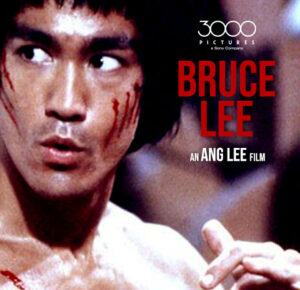
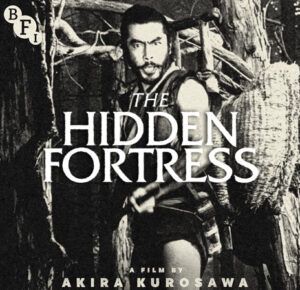
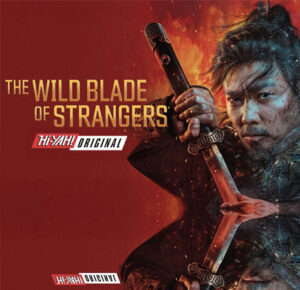
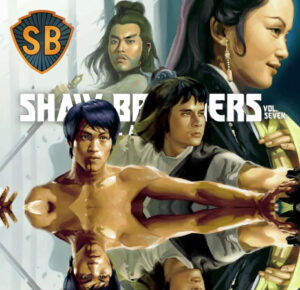















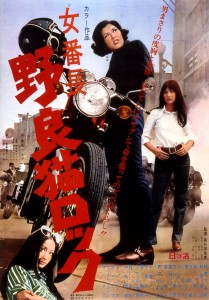
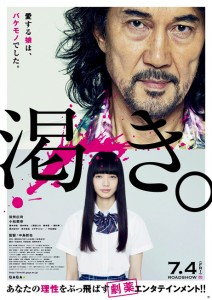





15 Comments